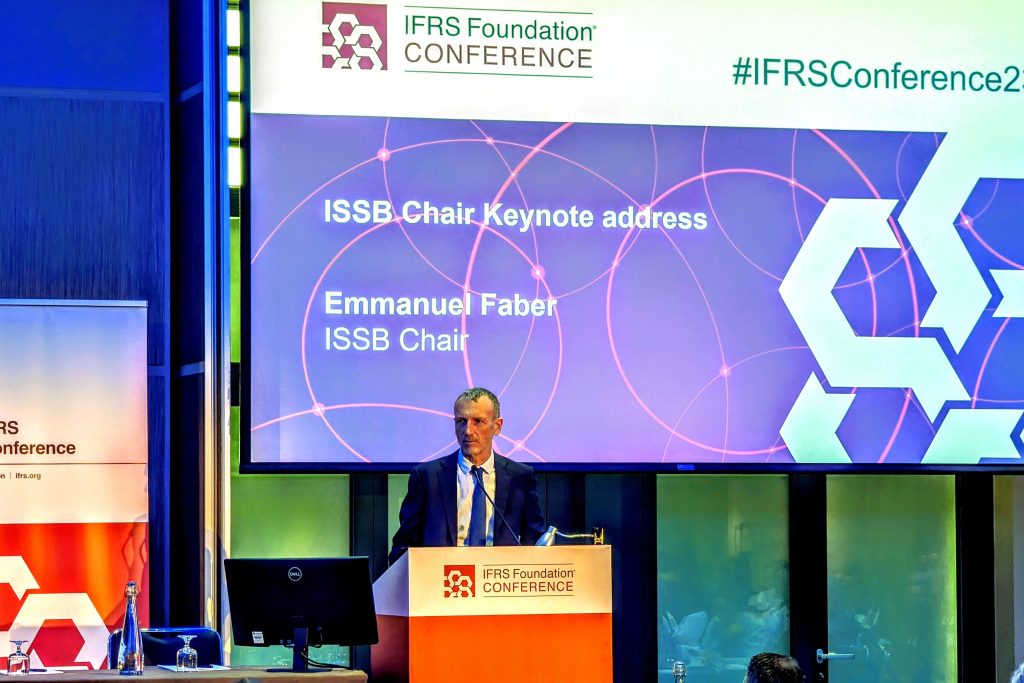The International Sustainability Standards Board (ISSB) has issued its inaugural standards: IFRS S1 and IFRS S2. The Standards will help to improve trust and confidence in company disclosures about sustainability to inform investment decisions in sustainable finance.
The Standards were officially launched by ISSB Chair Emmanuel Faber at the IFRS
Register for free to keep reading
To continue reading this article and unlock full access to GRIP, register now. You’ll enjoy free access to all content until our subscription service launches in early 2026.
- Unlimited access to industry insights
- Stay on top of key rules and regulatory changes with our Rules Navigator
- Ad-free experience with no distractions
- Regular podcasts from trusted external experts
- Fresh compliance and regulatory content every day













